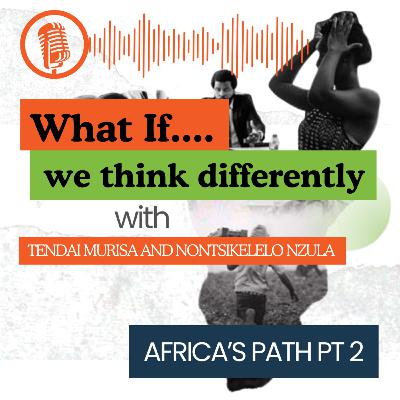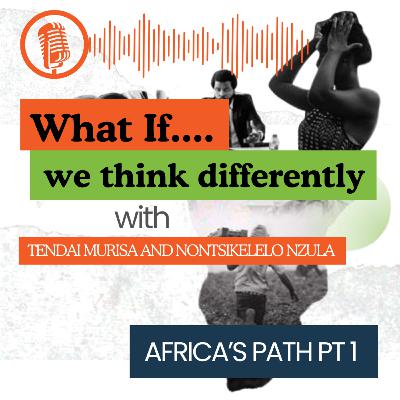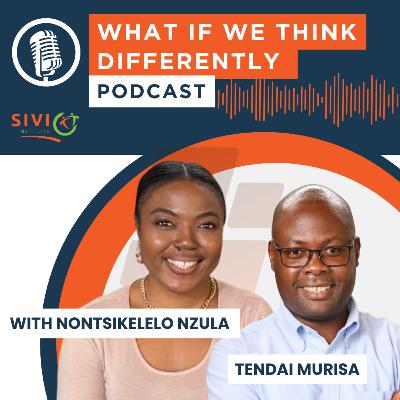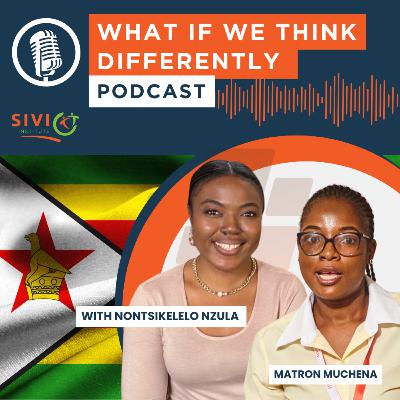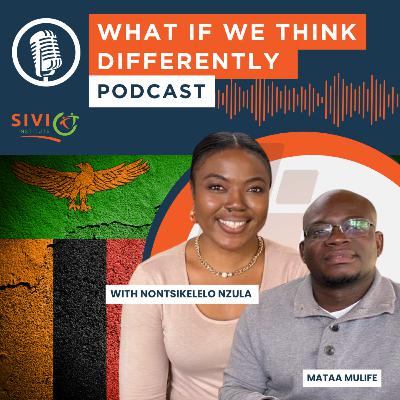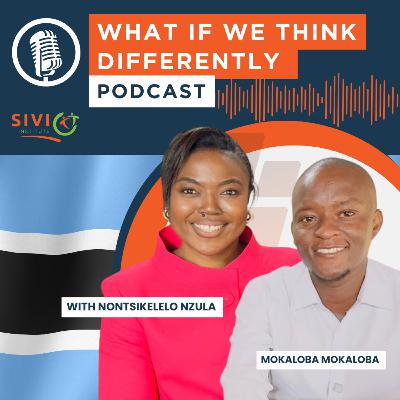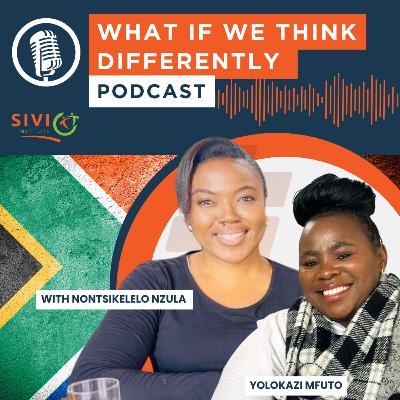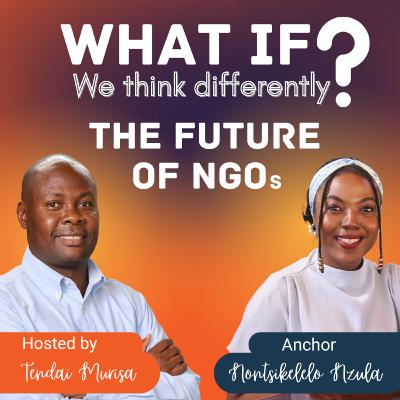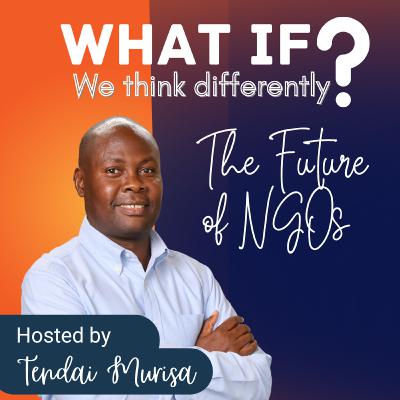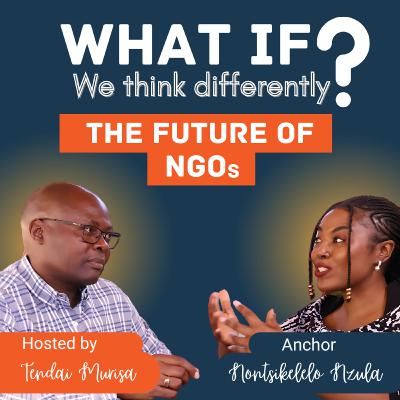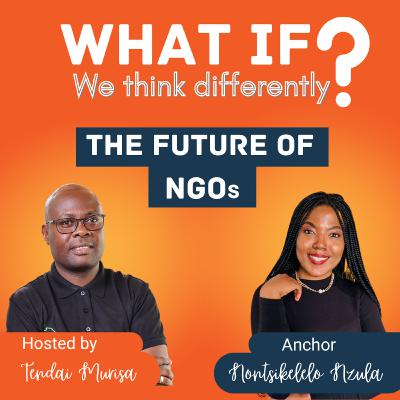Discover What If... We think differently?
What If... We think differently?

What If... We think differently?
Author: Tendai Murisa
Subscribed: 0Played: 4Subscribe
Share
© Tendai Murisa
Description
We revisit assumptions about our being and condition (location, social status and beliefs) and seek to identify ways getting out of the rut. We believe in the collective power of common people. We tell stories of everyday heroes of hope and the grind. Above we seek to reclaim our agency.
42 Episodes
Reverse
In this concluding episode of Africa’s Path, we move from diagnosis to action. Building on the continent’s current challenges, the conversation centres on what must be done to reclaim Africa’s development agenda. We explore practical solutions that empower local entrepreneurs, strengthen agency, and unlock innovation. From investing in homegrown enterprises to reimagining financing models and nurturing entrepreneurial ecosystems, this episode highlights how Africans can solve African problems. The discussion emphasises solidarity, resilience, and the critical role of entrepreneurship in shaping a future defined not by dependency, but by self-determined prosperity.
This opening episode of Africa’s Path explores the continent’s current economic and social crossroads, drawing on an earlier insight. We unpack Africa’s debt challenges, food insecurity, and reliance on imports, while highlighting the urgent need to reframe prosperity beyond GDP. The conversation teases bold solutions rooted in agency, entrepreneurship, and self-determined transformation—from rethinking governance and financing to embracing innovation and value addition. Listeners are invited to reflect on how Africa can move beyond dependency and chart a future of inclusive growth, resilience, and entrepreneurial statecraft.Read the whole insight: https://doi.org/10.59186/SI.UP3JXT4H
What does civic tech actually change—and how do we know it is working?In this episode, we unpack the “So What?” question behind African Citizens Watch, a platform built to strengthen public accountability across Africa. From promises to actions, we explore how African Citizens Watch connects evidence to action—and why that matters for governance, donor engagement, and grassroots advocacy.Tune in to hear:- The origin story of African Citizens Watch and its multi-country civic tech collaborations - How the platform answers the “So What?” with real-world impact and strategic storytelling - Lessons on promises vs reality, budget constraints and policy autonomy in African accountability efforts - Why civic tech must go beyond dashboards to drive systemic change Whether you're a civic innovator, donor strategist, or youth advocate, this episode offers insight into how platforms like African Citizens Watch are reshaping the accountability landscape.🔗 Learn more and join the movement: https://africancitizenswatch.org/#CivicTech #Accountability #AfricanCitizensWatch #DataForChange #DonorEngagement #YouthEmpowerment #GovernanceAfrica
Diving into Zimbabwe’s challenges and opportunities, and final insights from the series.
Four years in office; one more year to go: Has the government of Zambia done enough for a second term?
Botswana has long been hailed as a model of democratic stability in Africa. Yet, since gaining independence in 1966, the country remained under the rule of a single dominant party—until the historic elections of October 2024. The Umbrella for Democratic Change (UDC) emerged victorious, ushering in a new era of governance.In this episode, we explore whether this political shift has led to meaningful change. Has the new government delivered on its campaign promises? What progress has been made, and what challenges remain as it nears the end of its first year in office?Mokaloba Mokaloba, our Botswana country researcher, joins us to unpack the evolving political landscape, assess the government's performance, and reflect on what this moment means for the future of Botswana’s democracy.
A closer look at the Government of National Unity in South Africa. Can they navigate internal tensions to deliver on commitments made to citizens? For the first time since 1994, the ANC has lost its parliamentary majority. Now, ten parties are partnering under the Government of National Unity (GNU). But can shared governance deliver unity, or will it deepen division?In this episode of What If ...We Think Differently?, we dive into the current state of the nation using fresh insights from our Tracker data: 121 promises made, 27 actions in progress. As old allegiances fracture and new coalitions form, we ask—what’s happening beneath the surface? And what does it mean for South Africa’s future?Learn more about the South Africa Citizens Watch platform from our country researcher, Yolokazi Mfuto. https://africancitizenswatch.org/south-africa
Explore how NGOs are redefining themselves beyond the traditional model, shifting back to authentic, membership-based associations and unions led by member interests. Learn about community-embedded organisations, innovative revenue strategies for sustainability, and hybrid models that blend community leadership with social enterprise. Gain concise, practical insights for building resilient, future-ready organisations.
In this episode, we examine the future of NGOs amid a rapidly changing global landscape. As traditional aid models face disruption, marked by reduced foreign funding and shifting donor priorities, NGOs must adapt to survive. We discuss how aid, once driven by donor interests and conditionalities, is being reimagined around mutual benefit and local agency, especially as Africa asserts its leverage through resources and skilled labour.We also explore the necessity for NGOs to reset their strategies—prioritising accountability to their members, embracing digital transformation, and fostering local leadership. Join us as we unpack these critical challenges and opportunities, providing actionable insights for NGO leaders, donors, and policymakers committed to shaping a more impactful and self-reliant nonprofit ecosystem.
In this episode, we dive headfirst into the fast-changing world of NGOs and nonprofits! Discover how organisations are navigating a perfect storm of funding cuts, rising costs, and fierce competition for resources, all while demand for their services keeps climbing.We will unpack why today’s leaders need to think beyond traditional models, embracing entrepreneurial mindsets and bold strategies like mergers and collaborations to survive and thrive. From workforce shortages and financial uncertainty to the power of innovative partnerships, join us for a candid look at what it really takes to stand out, adapt, and make a lasting impact in 2025’s challenging landscape.
In this episode of the What If… We think differently? podcast, we discuss the dramatic shifts in NGO funding that unfolded in January 2025, focusing on the significant cuts to official development aid by major donors like the US and European countries. Drawing from Tendai’s recent paper, The Future of NGOs (https://doi.org/10.59186/SI.3KYH7WCH), we distil the key issues around sustainability and the evolving role of NGOs amid these funding disruptions. We explore:how these cuts have led to closures and operational challenges for many organisations heavily reliant on aid,the increasing pressure on NGOs to find alternative funding sources such as private foundations, and the broader implications for NGO independence and effectiveness. The conversation also highlights the shrinking legal and financial space for NGOs, especially in Africa, and contemplates whether this marks the end of an era for traditional aid models or the beginning of a new paradigm. Join us as we unpack these critical developments and set the stage for future discussions on the resilience and transformation of NGOs in a changing global landscape.#FutureOfNGOs #AidTransition #GlobalDevelopment #RethinkingAid #BeyondAidEra
What role do engaged communities play in fostering a culture of inclusive democracy? In this episode we explore democracy beyond elections and the power associational life can have towards inclusive development and what this looks like in the 21st century.
What must we do as citizens to improve the transport system in Zimbabwe and how we learn from our past mistakes and failures and reconsider something else?
What are the possible ways of improving domestic resource mobilization?
What is limiting the growth of agriculture and what are the potential challenges in the growth of Agriculture? Let’s discuss these questions and explore possible solutions. What must we do?
In this series, we look at ways of raising resources and how to effectively deploy them. Starting with local governance, how must we improve local authority revenue collection and deployment to deal with the problems we are facing?
Democracy has several sites of expression including the working of communities within and amongst each other through associations and networks of solidarity to solve public problems. This episode uncovers some of the sites of expression, and by extension sites of democracy in practice.
Tendai Murisa, Shelly Satuku and Belinda Chaora
Twitter:
@tmurisa
@bchaora
@Shelly_Dlamini
What do you see as the link between democracy and economic progress or development? Can one advance without the other? In this podcast we flesh out this important link explaining the interplay between livelihood, trade, asset accumulation and resource distribution. We demonstrate that the processes which govern these activities are the expression of democracy.
Tendai Murisa, Belinda Chaora and Eddah Jowah.
Twitter:
@tmurisa
@bchaora
@E_Jowah
We each have our firm positions on what our political solutions should look like. But rarely do we take a step back to think about the consequences of our refusal to compromise. In this episode, Tendai is joined by Claire as they explore the impact of our failed national conversations and what good conversation on national discourse can look like.
Tendai Murisa, Claire Nyamayaro and Belinda Chaora
Twitter:
@tmurisa
@bchaora
@Clairenyamayaro
In this podcast we look at the concept of citizenship, what it looks like and how can it be practiced by everyday people. We consider some activities being done by ordinary residents that demonstrate active citizenship.
Tendai Murisa, Sharon Murisa and Belinda Chaora
Twitter:
@tmurisa
@Shazzyvimbai
In this podcast, we look at how citizens can take back control of how their cities or urban centers are run by being more involved in problem-solving. We showcase some examples that have happened in Zimbabwe, where citizens have engaged in co-production leading to new forms of accountability and change.
Tendai Murisa, Eddah Jowah and Belinda Chaora
Twitter:
@tmurisa
@E_Jowah


